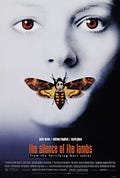Why Halloween is a horror movie but Batman is an action movie
Musings on the definition of the horror genre
Keep reading with a 7-day free trial
Subscribe to Morbidly Curious Thoughts to keep reading this post and get 7 days of free access to the full post archives.



